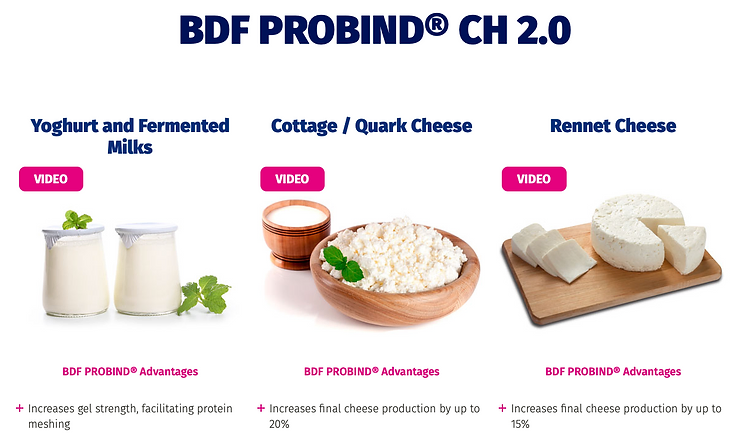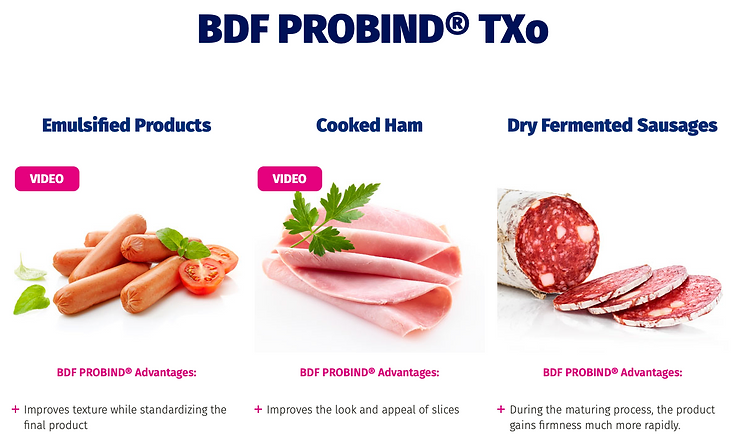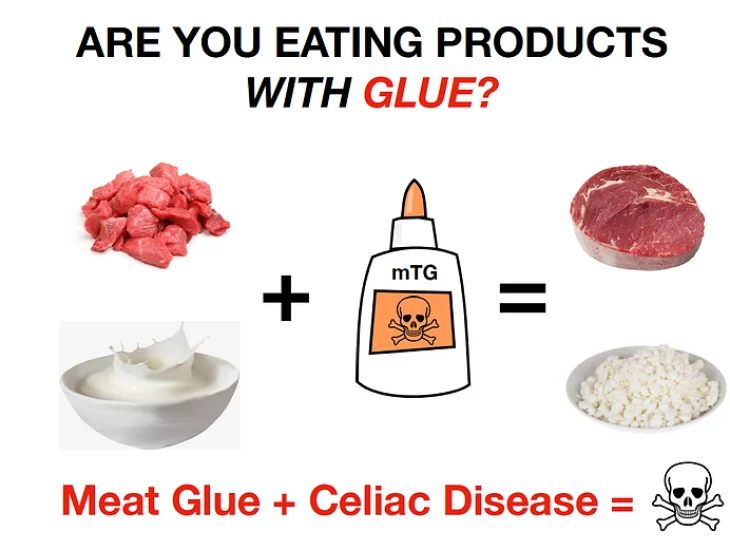Meat Glue: The Possible Link to Celiac Disease
Meat glue, also known as bacterial transglutaminase (BTG), is an enzyme that is widely used in the food processing industry. It is used to improve the texture and appearance of processed foods such as meat, fish, dairy products, and baked goods. However, in recent years, there has been increasing interest in the possible association between celiac disease and BTG.
BTG and Celiac Disease
In recent years, there has been increasing interest in the possible association between celiac disease and bacterial transglutaminase (BTG), also known as meat glue a food additive widely used in the food processing industry. BTG is an enzyme that can crosslink proteins, which improves the texture and appearance of processed foods such as meat, fish, dairy products, and baked goods. However, some studies suggest that BTG may also trigger an immune response in individuals with celiac disease.
The theory is based on the fact that BTG can deamidate gluten, a process that changes the structure of gluten proteins and makes them more immunogenic. Deamidated gluten is more likely to be recognized by the immune system and trigger an immune response, which can cause inflammation and damage to the small intestine in individuals with celiac disease. Furthermore, some BTG enzymes have been found to share similar amino acid sequences with the tissue transglutaminase (tTG) enzyme, which is the target of the autoimmune response in celiac disease.
Studies on BTG and Celiac Disease
Several studies have investigated the possible association between BTG, also known as meat glue and celiac disease, with mixed results. Some studies have found that meat glue can trigger an immune response in individuals with celiac disease, while others have found no association. For example, a study published in the Journal of Agricultural and Food Chemistry in 2011 found that meat glue could modify gluten proteins in a way that made them more immunogenic, but the study did not investigate the effects of meat glue on celiac disease patients.
Another study published in the Journal of Pediatric Gastroenterology and Nutrition in 2017 found no evidence of an immune response to BTG in celiac disease patients who consumed BTG-containing food products. The study concluded that BTG was unlikely to be a significant risk factor for celiac disease.
Risk for Celiac Disease Patients
Despite the mixed results, some experts recommend that individuals with celiac disease avoid consuming processed foods that contain meat glue. The risk may be higher for individuals with a more severe form of celiac disease or those who are sensitive to low levels of gluten. However, more research is needed to determine the exact role of meat glue in celiac disease and whether it is a significant risk factor for the disease.
Better Choices for Meat and Deli Products
Overall, there are better choices out there for meat and deli products. General consensus is that steering away from processed foods is a much healthier diet and lifestyle choice.
Below are pictures from a company called BDF Ingredients which produces a variety of different glues for applications. This reference is not to say this exact product is used in the products you buy, but it’s an example of how this meat glue ingredient works.



Unfortunately, these glues lurk in more food products than we are aware of, and it appears to be a confusing mind field to ascertain how it’s labelled if at all in different countries. I wonder the next time you are at your supermarket and see that rolled up deli ham on the counter, if the staff would let you know what the ingredients are, and if there is even a labelling law in your country that states this meat glue ingredient is to be listed at all?
Check out this link to a video on how it’s used in meat production.
Conclusion
While there is still much to learn about the possible link between BTG and celiac disease, it is important to be aware of the potential risks associated with consuming processed foods that contain this enzyme. Individuals with celiac disease or those who are sensitive to low levels of gluten should exercise caution when consuming processed foods and try to choose healthier options whenever possible.
Don’t miss out on the fun! Our other blogs are chock-full of exciting science and research topics, all related to the world of Celiac and Gluten-Free living. Check them out today!
- Gluten Diets In Young Kids May Link To The Development Of Celiac Disease
- Celiac Disease Blood Test Takes Us Closer To An Accurate Diagnosis
- Connection Between Undiagnosed Celiac Disease And Infertility, Miscarriages, And Stillbirths
- Is Celiac Disease Risk Factors For COVID-19?
- Intestinal Lymphoma: Is Your Risk Of Cancer Increased Due To Celiac Disease?
- Exploring The Connection Between Humans Microbes And Celiac Disease
- Periodontists Get Certified On Impact Of Celiac Disease On Dental Health
- What Are The Food Additives That May Cause Celiac Disease?
Remember to always stay curious and continue learning. Thank you for taking the time to read my post. Until next time…Jodes








